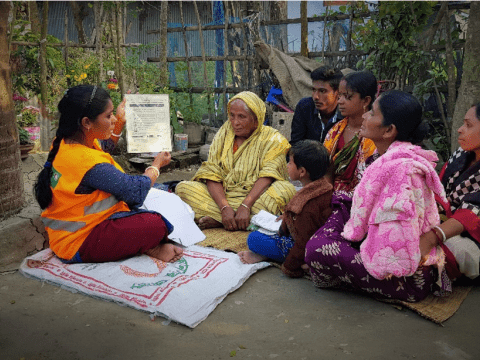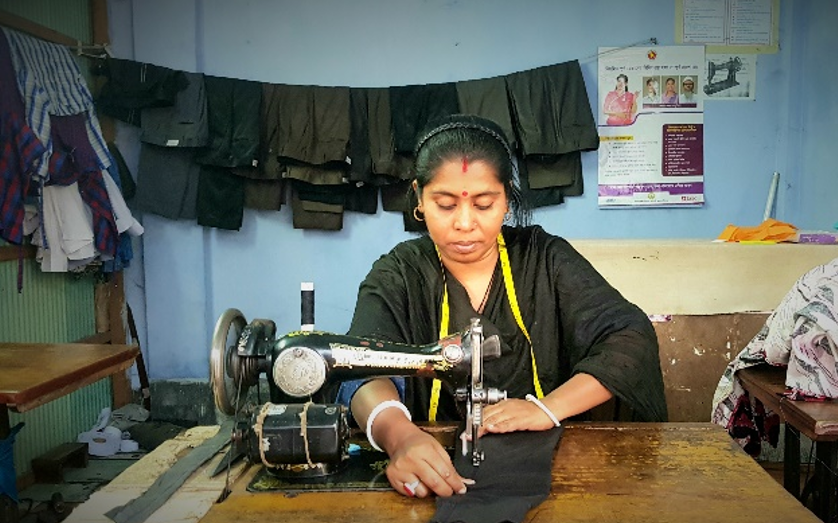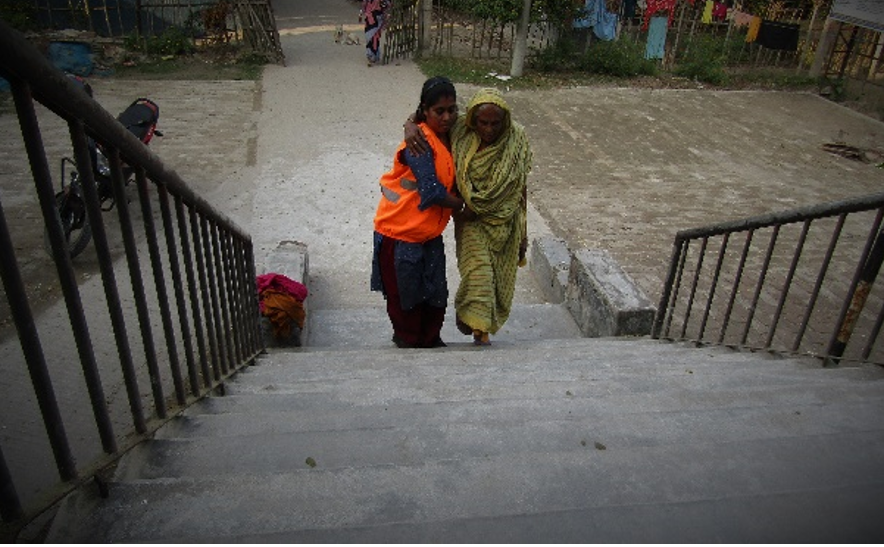USAID supports volunteers to prepare for cyclones in south west Bangladesh

Cyclone Bulbul hit the coast of Bangladesh on 10 November, 2019 with fierce gales and torrential rain. In coastal Khulna, the worst-hit district in Bangladesh, trees were ripped from the ground, blocking roads and hampering access to the area. Bangladesh’s low-lying coast, home to 30 million people, is regularly battered by cyclones – but this time Bishakha Sarker, (32) knew exactly what to do.
Having lived in the coastal district her entire life, Bishaka, a wife, mother and seamstress, is well aware of the dangers and damages caused by cyclones. Which is why she joined the Cyclone Preparedness Programme (CPP) – a community system to spread early disaster warning messages - led by the Government of Bangladesh. As a CPP volunteer, Bishaka also had her first contact with USAID’s Nobo Jatra project, implemented by World Vision. To start, Bishaka was trained on search, rescue and first aid and then went on to attend Community Risk Assessment sessions led by Union level Disaster Management Committees. Bishaka also learned about the importance of household level disaster plans that guide families living on the front line of cyclones and storm surges to understand and act on flag warnings and know where the nearest cyclone shelters are. As a volunteer, Bishaka went on to help 40 families develop household level preparedness plans.

When the Government announced that cyclone Bulbul was approaching, Bishaka was able to spring into action. First, Bishaka and other CPP volunteers stayed in close contact with their local Union Disaster Management Committee and monitored the weather updates. Disaster Management Committees were responsive from the onset – calling regular meetings during the warning phase, when the disaster hit and also in the aftermath. The meetings were well attended and women volunteers like Bishaka were also present and actively engaged in coordinating efforts with NGOs, disseminating weather updates, involved in evacuation efforts, managing shelters, food and first aid distribution.
Bishaka used the flag warning system to alert families on the severity of the cyclone and after attending emergency meetings of the Union Disaster Management Committee, Bishaka started moving door-to-door and using loudspeakers to urge people, particularly women, children and those with disabilities living in vulnerable low lying areas to move to cyclone shelters. Bishaka was able to use her first aid skills to treat people with minor injuries in cyclone shelters and also acted as a security focal point in the shelter.

As Bishaka puts it, ‘We can't prevent disasters, but we can reduce the damage with our own preparation and skills. When cyclone Bulbul was approaching we knew what to do, where to go and we understood the warning signals. The CPP volunteers worked closely with Union Disaster Management Committees.’
While the frequency and intensity of the storms have increased, partly due to climate change, the death tolls have come down because of faster evacuations by active, knowledgeable Disaster Management Committees, community and Government volunteers (many of whom are youth) and thousands of coastal shelters. Early, coordinated action from Disaster Management Committees and volunteers like Bishaka resulted in 204,000 people taking refuge in 483 cyclone shelters – thus saving lives and significantly reducing the number of casualties.
In the immediate aftermath of the cyclone, youth and CPP volunteers like Bishaka participated in search and rescue operations; repairing of embankment and connecting roads; damage assessments; reconstruction of house, removed fallen trees to clean roads and support people to return home from shelters. Bishaka has recently participated in trainings for Ward level Disaster Management Committees – which have recently approved by the Government of Bangladesh. She continues to take her responsibility as a CPP volunteer seriously – and leads awareness sessions in schools and participates in cyclone drills.